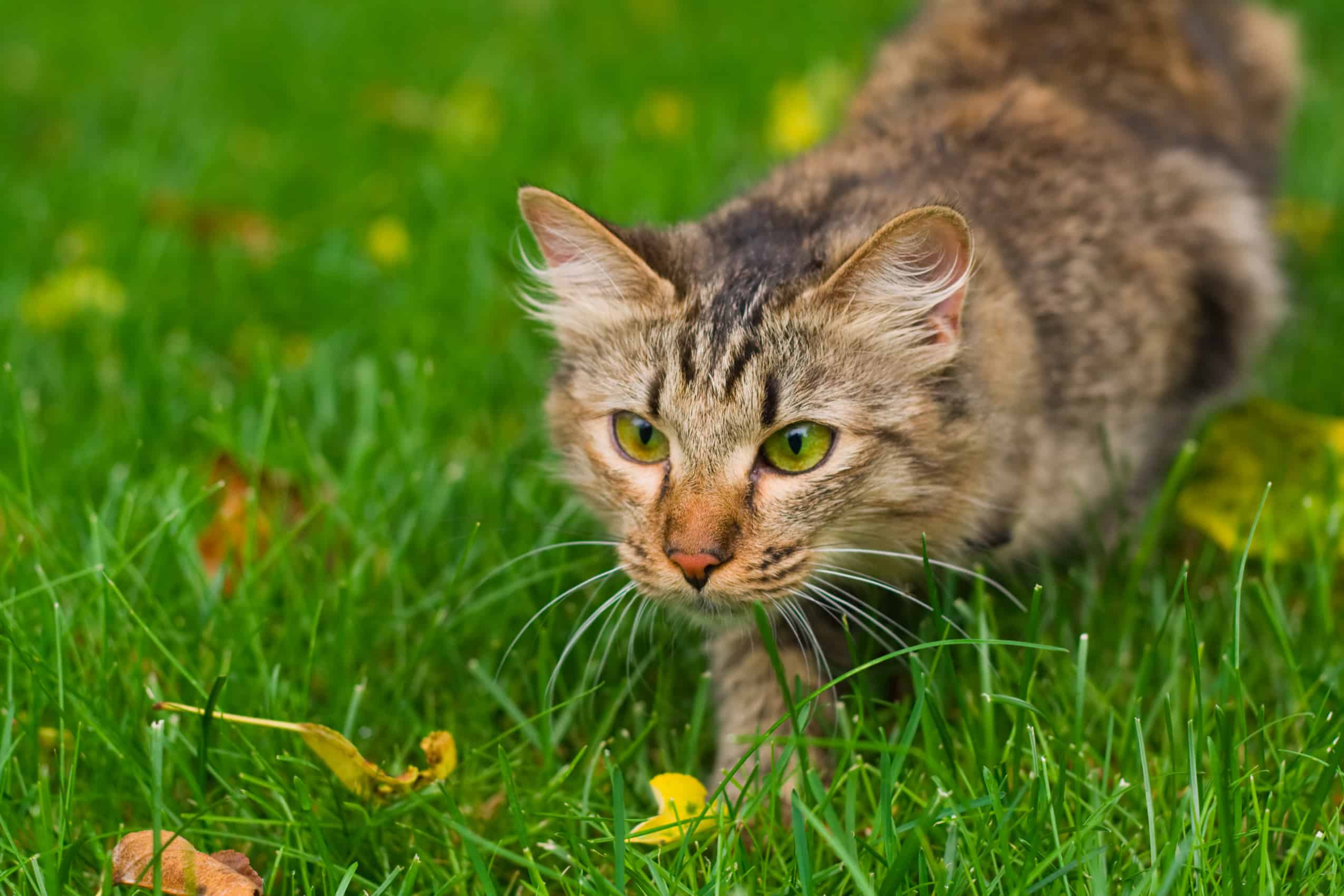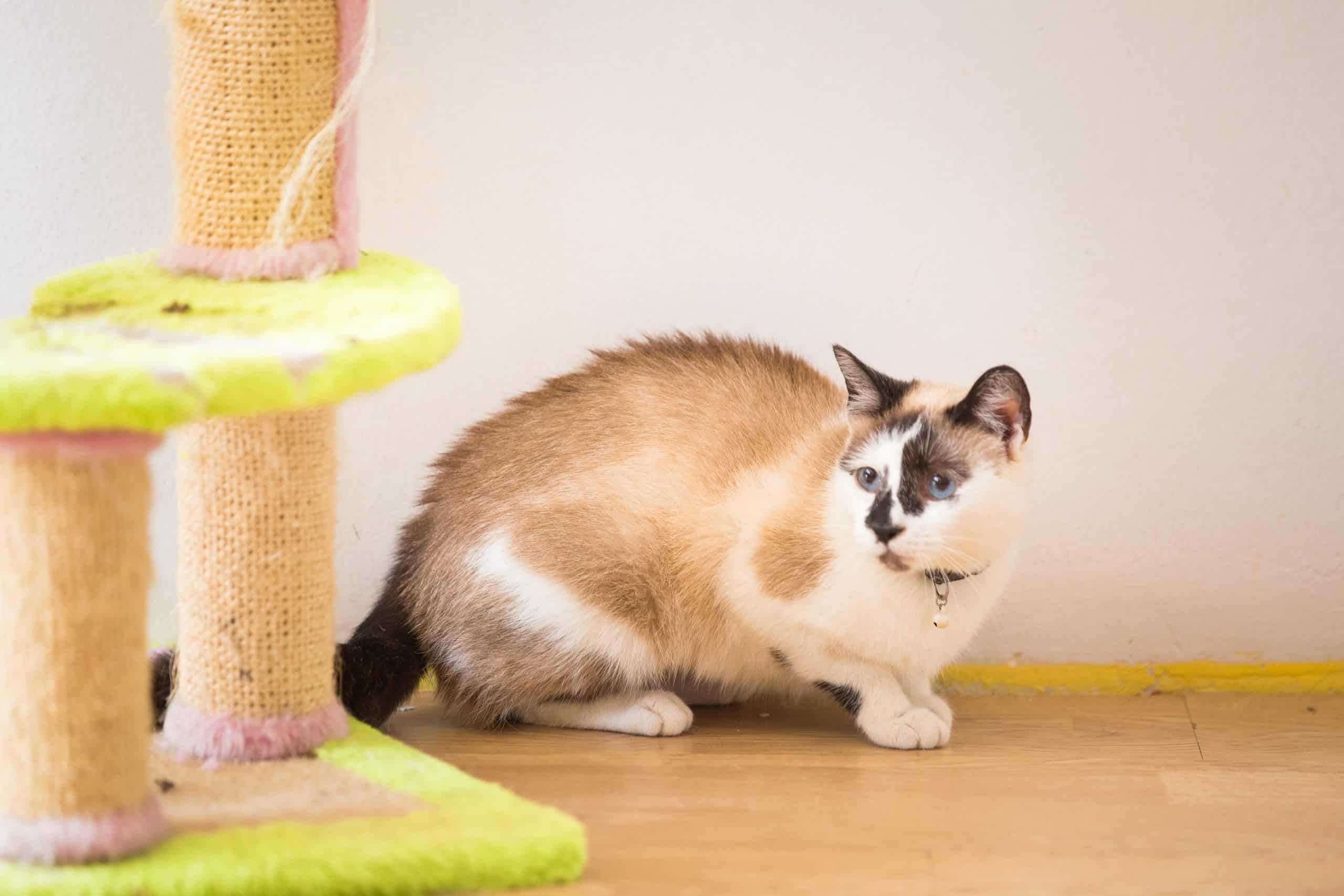Feline memory is far from simple. We all know cats remember enough to know exactly where to find their litter boxes and food bowls. And we’re pretty sure they recognize our faces after we come home from a long vacation. But at the same time, I’ve known some forgetful felines that make me wonder how much cats actually remember.
Do they remember past owners? What about the neighbor’s dog that they met one time? If my cat loses a toy under the couch, will he remember where it is the next day? It’s too bad we can’t quiz our feline family as a way to learn more about their memories, but we can interpret what they’re thinking based on behavior.
Cats Remember The Important Stuff
Studies indicate that cats remember things best when information is vital to their survival. Feral cats remember where the best hunting grounds are, and your pampered house pet knows exactly where to find their food dish. As long as it has something to do with your cat’s basic life needs, there’s a good chance it’ll “stick” in their brain. Food, water, safety, comfort—all of these things are too important to forget.
Emotional Associations
In addition to survival-related memories, researchers also believe cats can remember experiences that were particularly emotional. They might not remember exact details of what happened, but they will make emotional associations with certain objects, people, or sounds.
As an example, let’s think about what would happen if a cat fell in a pool and almost drowned. It’s safe to say that experience would cause extreme emotional distress. In the future, there’s a good chance the cat will relate all water to those feelings of panic and terror. Kitty might not remember falling into the pool or how they were saved. But the memory of how they felt will stick with them and likely resurface the next time they’re around water.
The same theory holds true for especially positive emotions. If you spend several minutes every day scratching your cat in their favorite itchy spot, they’ll start to associate you with feelings of comfort and pleasure. Next week, your cat probably won’t remember that time you scratched their ears for 17 minutes straight. But they will remember how they felt, and they’ll associate you with those happy feelings.
If something is important enough or emotional enough, cats can commit the information to long-term memory. That’s how they can recognize significant people a year later and hold onto their hatred of water for their entire lives.
Here’s What Science Says About Short-Term Memory
We use our short-term memories for a long list of tasks—some essential to our well-being, and others not so much. We don’t forget to turn the stove off after we’re done cooking, and we can remember a phone number just long enough to dial. Humans can commit just about anything into our short-term memory if we focus. But what about cats?
There have been several scientific studies focusing on feline short-term memory. In one, 50 cats were able to remember which bowls still contained food after being removed from the bowls for 15 minutes. That’s a relatively long time-frame, especially considering studies show dogs have an average short-term memory of only 2 minutes.
Another study done in 2006, however, suggests something much different. In this experiment, cats were tested on their ability to remember where an object was hidden. They watched a handler hide the object in one of four boxes. The cats then had to wait either 0, 10, 20, 30, or 60 seconds before they could find the object. By the time they hit 30 seconds, most of the cats failed this simple test.
The results of this study seem to suggest that cats have terrible short-term memory. But when we consider what we already covered about cats remembering things based on survival, it makes sense that they wouldn’t be great at finding a random object. That kind of memory is not explicitly necessary for the cat’s survival, and there’s no strong emotional connection. If the experimenters had used food instead of a random object, they might have gotten much different results.
Memories and Age
Just like humans, a cat’s ability to retain memories can decline with age. They lose brain cells as they get older, and that can potentially affect what they remember and how well they remember it. Cats might gradually forget something they’ve known for years, and they also might struggle to formulate new memories.
Research shows about 50% of cats aged 11-15 have signs of feline cognitive dysfunction. That number jumps to 80% for cats aged 16-20. If your senior cat starts acting strangely, the behavior could be memory related. Maybe they’re peeing on the floor for the first time since they were a kitten. It might be because they can’t remember where the litter box is. If you notice any signs of unusual behavior, it’s always best to talk to your vet.
Let’s go back to my original questions about what cats remember.
With a better understanding of how feline memory works, we can take a closer look at specific instances in a cat’s life.
Can cats remember past owners? Maybe. It depends on how long the cat was with that person and if they made any kind of significant emotional impression.
Can they remember the neighbor’s dog that they met one time? If that dog tried to attack them, you can bet they remember. That experience likely triggered both their survival instinct and a strong emotional association. But if the dog just gave a quick sniff and went back to minding his own business, your cat probably doesn’t remember.
Will my cat remember where he lost his toy? It depends on how much he likes the toy. If it’s his absolute favorite toy that he associates with strong memories of happiness, he might remember the last place he saw it on a short-term basis. But if it’s just another catnip mouse, he’ll likely lose interest the minute after it’s out of sight.







